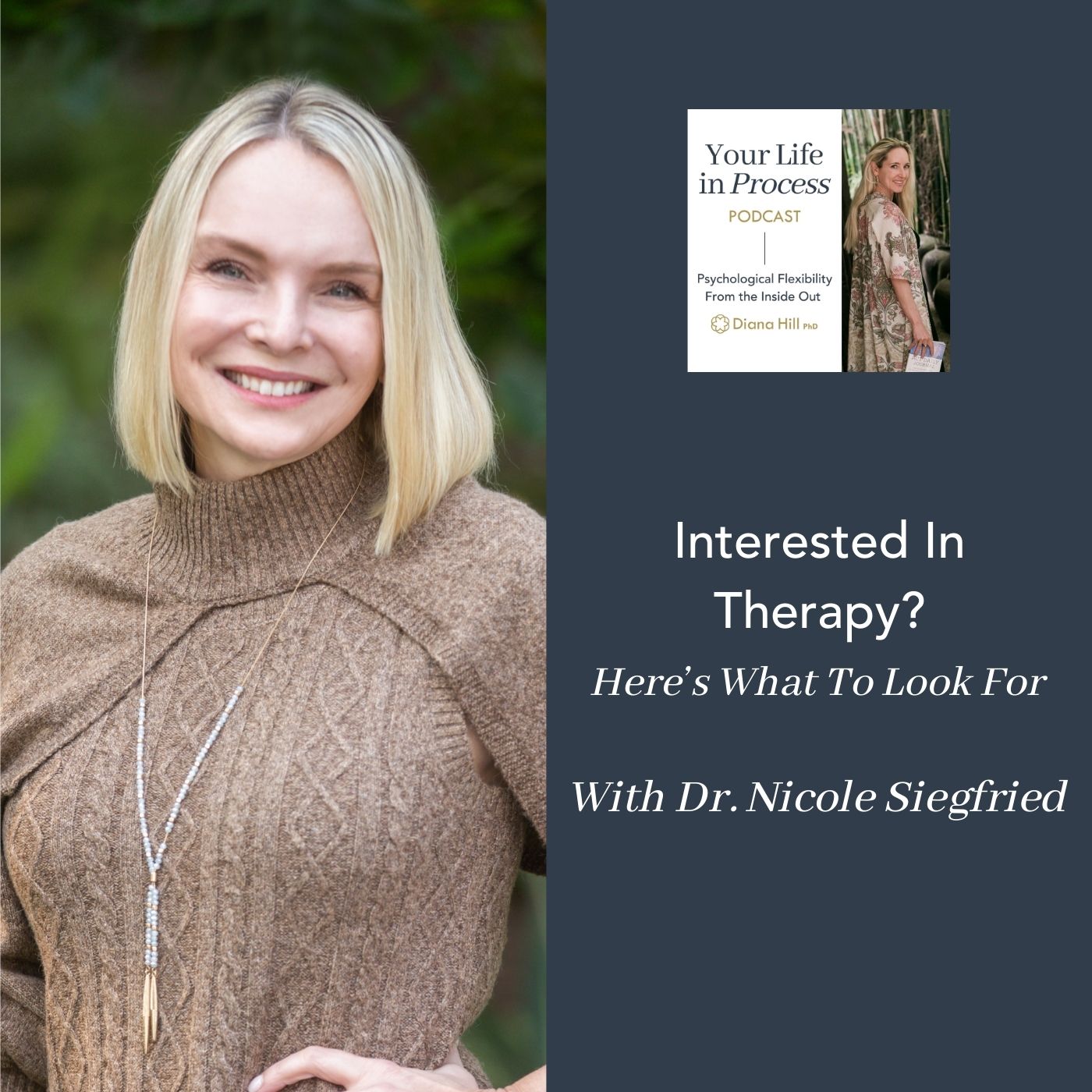We are in a mental health pandemic. Do you struggle with asking for help? How do you know what is the right type of helping resource for you? How do you overcome personal and systemic barriers to seeking mental health care? What characteristics do you look for in a therapist? In this episode, Dr. Diana Hill and Dr. Nicole Siegfried take the mystery and the stigma out of mental health care. Diana shares skills to practice the vulnerability of asking for help despite emotions that may come up.
About Dr. Nicole Siegfried
Dr. Nicole Siegfried is the Chief Clinical Officer for Lightfully Behavioral Health. She is a licensed clinical psychologist and serves as an Adjunct Assistant Professor of Psychology at the University of Alabama at Birmingham. She has worked in mental health for over 20 years and has served in national leadership positions for the past 10 years. She is an international speaker and has published research, magazine articles, and book chapters in eating disorders, mental health, and suicide. Nicole believes that recovery is possible for all individuals with mental health disorders and that all individuals are capable and deserving of a life worth living. She brings with her a commitment to a training-focused, outcomes-driven clinical model and a passion for team culture and collaboration. Nicole lives in Birmingham, Alabama with her family. She loves reading, skiing, and traveling with her family.
Key Takeaways
- Isolating ourselves and avoiding our human emotions contributes to mental health suffering.
- Asking for help is a vulnerable process of communication.
- If you are struggling with symptoms that are interfering with living your life, it’s time to seek outside help for the problems.
- Identifying the processes that keep you stuck and the processes that lead you to wellness are critical in mental health care.
- The relationship with your therapist is central to meeting your goals in therapy.
- A therapist should convey warmth, be self-aware, understand power dynamics, and be up to date on research-backed care.
- Mental health care is not one size fits all.
Related Resources
- Download Your Daily Practice for this episode
- Find out what kind of Striver you are and get your free Skillful Striving Toolkit
- Learn more about Lightfully Behavioral Health
- Learn more about Dr. Nicole Siegfried
- Read Dr. Siegfried Guest Post on my blog
- Research article: Examining Hope as a Transdiagnostic Mechanism of Change
- Research article: Love yourself as a person, doubt yourself as a therapist?
- Book Chapter: How and why are some therapists better than others: Understanding therapist effects by Wampold et al. (2017)
- Information about pandemic stress and mental health: APA Stress in America 2021 Survey
- New York Times article: We Surveyed 1320 Therapists and the News Isn’t Good by Tara Parker-Pope
- Video of Steven Hayes on Process-Based Therapy
- Nicole’s Walk-up song: What a Wonderful World by Louis Armstrong
- Diana’s Walk-up song: Compassion by Lucinda Williams, and Twameva by Janet Stone
Diana’s Events
- Reserve your spot in Diana’s Reset and Restore Retreat in Costa Rica in 2023!
- Sign up for Diana’s From Striving to Thriving Summit!
- See Diana at an upcoming event
Connecting With Diana
Thank you for listening to Your Life in Process! Subscribe to the podcast for free on Apple Podcasts, Spotify, Google Podcasts. If you have any questions or feedback you can contact Diana by email podcast@yourlifeinprocess.com or leave Diana an audio message at (805) 457-2776. Follow Diana at YouTube, Instagram, LinkedIn, Facebook, and Diana’s website.
Thank you to the team Craig, Angela Stubbs, Ashley Hiatt, and Abby Diehl. Thank you to Benjamin Gould of Bell & Branch for your beautiful music.
Remember when you become psychologically flexible, you become free.
Episode Segments
- [00:00] – Introduction
- [00:21] – Sponsor: Lightfully Behavioral Health
- [03:51] – Meet Nicole Siegfried
- [08:33] – Diana’s Walk-up Songs
- [09:50] – The Mental Health Pandemic
- [14:17] – Internal Barriers To Seeking Help
- [21:52] – Diana’s Upcoming Events
- [22:32] – Seeking Therapy
- [28:11] – Core Psychological Processes In Well-being
- [44:05] – Levels Of Care
- [51:28] – Diana’s Summary
- [53:05] – Your Daily Practice
- [54:34] – Connect With The Podcast

+ show comments
- Hide Comments
add a comment